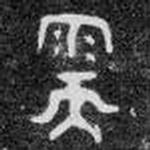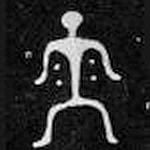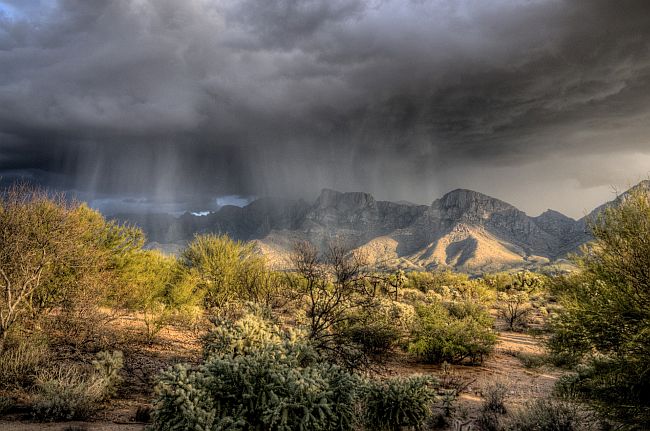Clarity,
Office 17622,
PO Box 6945,
London.
W1A 6US
United Kingdom
Phone/ Voicemail:
+44 (0)20 3287 3053 (UK)
+1 (561) 459-4758 (US).







The dancing shaman, pouring with sweat, is not just being patient.
mely that Waiting is not a passive, inert activity. Have truth and confidence (the most vital component of any offering or ritual); shine out; dare to cross rivers, taking risks to move towards what you need.
This is important, because our modern associations with ‘waiting’ are quite different: ‘this is beyond your control, so all you can do is be patient and have faith.’ The dancing shaman, pouring with sweat, is not just being patient.
Waiting isn’t just rain-dancing
It’s important not to take the etymology too literally, though. ‘Waiting’ isn’t simply synonymous with ‘dancing in a ring of fire’.
The other lines make this clear, I think. Line 5, for instance:
‘Waiting with food and drink.
Constancy, good fortune.’
Dancing in a ring of fire with food and drink? Unlikely. No… ‘waiting’ is more general and more universal; the shaman is still dancing, but in the distance

Overall you seem to be saying waiting, hexagram 5, is not passive. We wait with confidence, believing that the rain will come. We don't worry or try to make provision for it not coming we just wait because we can't make it come. That part is clear. But then you are saying actually we can make it come by metaphorically doing this frenzied sweaty dancing the shaman believes will make the rain come.
I once asked, "How likely [a pair of married public figures] are [at a particular event]?"
(I asked this for no better reason than idle curiosity and probably boredom.)
Yi's answer was 5uc. About a week later, I was watching the news. There was a story about a different public figure who was involved in the event, and as video filler they showed that person at this event, and lo and behold, there in the same shot was the couple I'd asked about.
That's a good way to put it, I think. (Not that I know anything about shamanism other than references like this blog post.)I guess you could call awareness, and the magic of it, shamanic.
...because literal rain has nothing to do with noticing rain or being aware of it. Unless - maybe - if we knew more about rain dances - the timing of a rain dance had something to do with the shaman being aware of something? No one would do a rain dance unless it hadn't rained for enough longer than usual for people to start caring, and longer-than-usual intervals between rain are less frequent by definition than average intervals, which might mean there's a good chance it will rain soon - nice time for a rain dance?And of course perhaps my awareness doesn't bring it my awareness just notices it.
Good point :bows:. I wonder where in the sequence is the fruition? 14, maybe? (Maybe this is in Hilary's course.)In terms of the sequence one could even say that Not Knowing goes to Waiting because waiting is an essential element of knowing. There is nothing to do but wait in many situations we can't find an answer to.
It’s important not to take the etymology too literally, though. ‘Waiting’ isn’t simply synonymous with ‘dancing in a ring of fire’.
The other lines make this clear, I think. Line 5, for instance:
‘Waiting with food and drink.
Constancy, good fortune.’
Dancing in a ring of fire with food and drink? Unlikely. No… ‘waiting’ is more general and more universal; the shaman is still dancing, but in the distance.

Saying there is no shaman in the lines is a bit like seeing a lot of references to 'television' and saying 'there is manifestly nothing there about seeing far.' The word waiting is the picture of the rain-shaman and it is in 5 out of 6 lines.... there is manifestly no shaman anywhere in the lines, dancing, sweating or doing anything, you say the shaman is still dancing but at a distance ?
The Image comes from the 5th line. There's more than one way of Waiting.If he is manically dancing for rain rather than being sure of it and so relaxing he's doing the opposite of what the Image says from Wilhelm
'Clouds rise up to heaven:
The image of WAITING.
Thus the superior man eats and drinks,
Is joyous and of good cheer.'
I know the I mage is much later but still.
But then you are saying actually we can make it come by metaphorically doing this frenzied sweaty dancing the shaman believes will make the rain come.
That's the same as was already suggested here
If there were an emoticon for a raised eyebrow I'd put one in.
Saying there is no shaman in the lines is a bit like seeing a lot of references to 'television' and saying 'there is manifestly nothing there about seeing far.' The word waiting is the picture of the rain-shaman and it is in 5 out of 6 lines.
The Image comes from the 5th line. There's more than one way of Waiting.
As I was trying to say, we need to take this idea of the dance quite loosely, generalise it and look for what's universal.
... and those are two things I don't think are the universal, generalisable, relevant part.
Not the huge physical exertion, because a) line 5 and b) I somehow doubt that exerting yourself to the point of sweating profusely was anything very exceptional back then. You didn't have to buy a gym subscription to see people sweating, and people sweating didn't 'make' it rain. What happens with the shaman is something different.
And not making the rain come, either - at least, I don't think that's the idea. I think it's more that you and nature are part of the same fabric. What you do is tied up with what it does - you're not just a spectator/ impartial observer. Apparently there was a broad understanding in early China that if nature was not behaving harmoniously - if the seasons weren't seasonal - then this was because humans were out of synch in some way. The human round of offerings and observations is part of the working of the whole thing. So 'shaman rains, clouds rain' is not exactly a transitive thing, as if the shaman is turning on the celestial tap - it's a rhyme.
Anyway, the lines get a bit subtler by suggesting that where (or how) you wait, aka the kind of dance you do, is what invites your experience.
It was probably your pet mouse who typed the part about the raised eyebrow, then.
Dancing in a ring of fire with food and drink? Unlikely. No… ‘waiting’ is more general and more universal; the shaman is still dancing, but in the distance.
Moving away from eyebrows, yes - I think part of why this post is hard is because it's hard to understand it as it would have been understood in ancient China. We can try imagining, but it's a lot to imagine. The facts about how rain dancing - a foreign concept to us - was done and how they perceived it, but then also the way it was incorporated into hexagram 5 and how it applies when we get 5 in readings. And as you say, it's invisible unless one really digs into it.
And not making the rain come, either - at least, I don't think that's the idea. I think it's more that you and nature are part of the same fabric. What you do is tied up with what it does - you're not just a spectator/ impartial observer. Apparently there was a broad understanding in early China that if nature was not behaving harmoniously - if the seasons weren't seasonal - then this was because humans were out of synch in some way. The human round of offerings and observations is part of the working of the whole thing. So 'shaman rains, clouds rain' is not exactly a transitive thing, as if the shaman is turning on the celestial tap - it's a rhyme.
It’s important not to take the etymology too literally, though. ‘Waiting’ isn’t simply synonymous with ‘dancing in a ring of fire’.
The other lines make this clear, I think. Line 5, for instance:
‘Waiting with food and drink.
Constancy, good fortune.’
Dancing in a ring of fire with food and drink? Unlikely. No… ‘waiting’ is more general and more universal; the shaman is still dancing, but in the distance.
And as you say, it's invisible unless one really digs into it.
Saying there is no shaman in the lines is a bit like seeing a lot of references to 'television' and saying 'there is manifestly nothing there about seeing far.' The word waiting is the picture of the rain-shaman and it is in 5 out of 6 lines.
It’s important not to take the etymology too literally, though. ‘Waiting’ isn’t simply synonymous with ‘dancing in a ring of fire’.
Dancing in a ring of fire with food and drink? Unlikely. No… ‘waiting’ is more general and more universal; the shaman is still dancing, but in the distance.
I don't find the concept hard at all, it's how I've been understanding 5 for years, I mean that one is part
of the waiting, that it's not only passive waiting but also the idea of waiting in a certain way, that there's different ways of waiting as in the lines - all that. I am familiar with the idea of a rain dancer, ordinarily thought to dance for rain though now Hilary says it's not like that here because
And not making the rain come, either - at least, I don't think that's the idea. I think it's more that you and nature are part of the same fabric. What you do is tied up with what it does - you're not just a spectator/ impartial observer. Apparently there was a broad understanding in early China that if nature was not behaving harmoniously - if the seasons weren't seasonal - then this was because humans were out of synch in some way. The human round of offerings and observations is part of the working of the whole thing. So 'shaman rains, clouds rain' is not exactly a transitive thing, as if the shaman is turning on the celestial tap - it's a rhyme.
I know why people did rain dances, possibly still do in some parts of the world. That understanding, that humans are out of synch and need to make offerings is pretty universal in human history.
Above, in the quote, Hilary is saying in Yi, because it's poetry, this isn't presented as the shaman making it rain, it's more that he becomes it, is it. So something confusing there is the mix of actual history, what they did and why they did it and Yi as poetry and our use of it as an oracle.
It could be either, couldn't it? If people are going to try to intervene when it's not raining enough, people might also try to intervene when it's raining too much, mightn't they?I only knew the character showed man + rain or man + droplets, and you can't tell from that whether he's waiting for the rain to start or stop.
In terms of the sequence one could even say that Not Knowing goes to Waiting because waiting is an essential element of knowing. There is nothing to do but wait in many situations we can't find an answer to.
Good point :bows:. I wonder where in the sequence is the fruition? 14, maybe?
 ) -
) -If Hexagram 5 is waiting for rain (and it is... blog post coming...) then it has to wait until 9.6:
'Already rained, already come to rest...'
Miss Skeptic is skeptical. :hide: What had the weather forecasts been saying? Were there any news stories about it?Two days later it poured rain.
A seven-day forecast can accurately predict the weather about 80 percent of the time and a five-day forecast can accurately predict the weather approximately 90 percent of the time. However, a 10-day—or longer—forecast is only right about half the time.

Clarity,
Office 17622,
PO Box 6945,
London.
W1A 6US
United Kingdom
Phone/ Voicemail:
+44 (0)20 3287 3053 (UK)
+1 (561) 459-4758 (US).